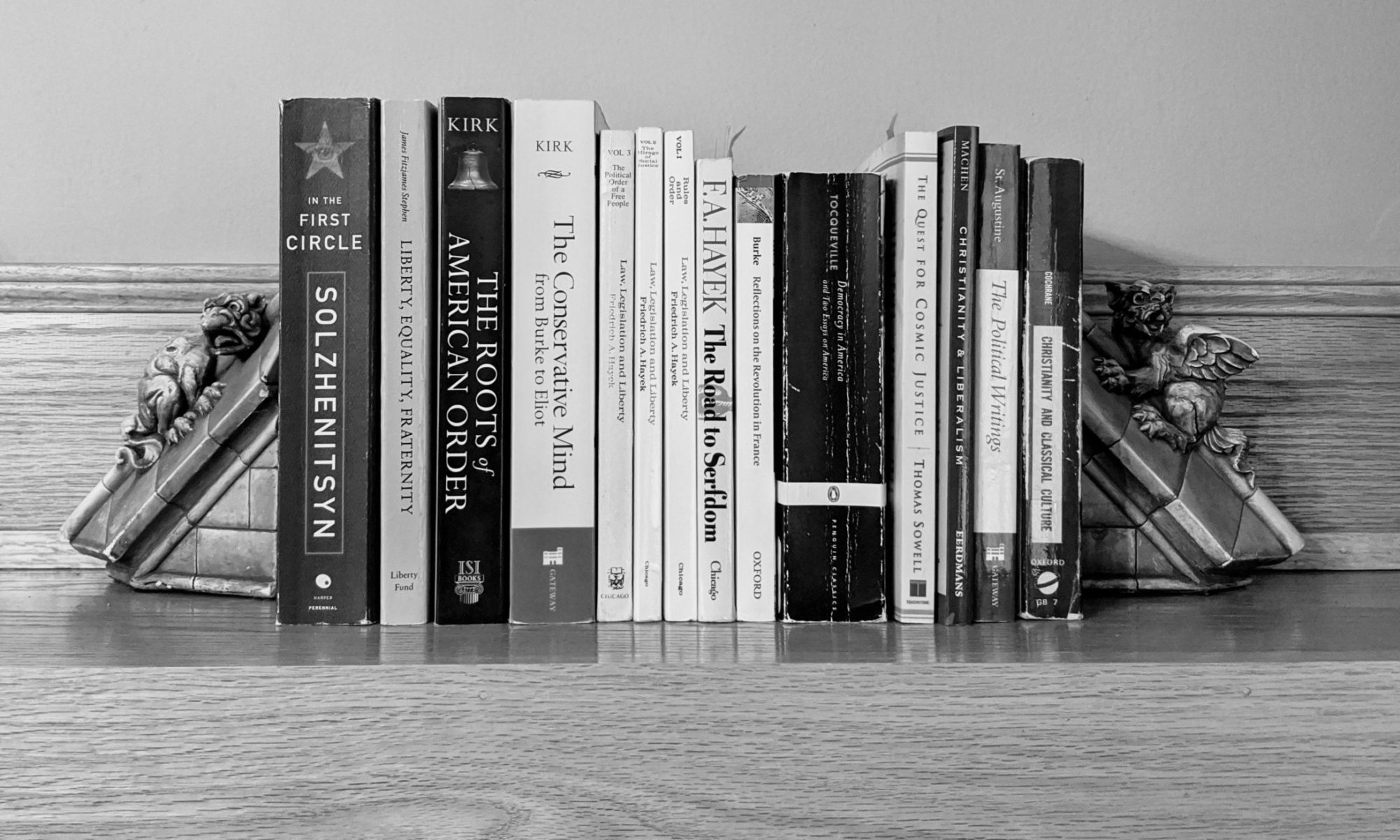A conservative seeks to defend, maintain and preserve “the spiritual, intellectual and political tradition of the western culture.” (Kirk Russell)
What is this spiritual, intellectual and political tradition that we want to conserve? The following is a sketch of this tradition. Material for this essay is largely taken from Russell Kirk’s The Roots of American Order, Hillsdale College’s Online Course: The Western Heritage
Tradition of Judeo-Christian Values(Jerusalem)
The Judeo-Christian tradition believes that a good God created an ordered universe and that this God demands moral behavior from His paramount creation, man. Judeo-Christian religion posits that there are certain fundamental truths handed down to us by a transcendent being. We didn’t invent these truths; we received them from God through revelation. The rules He lays down for us are vital for building a functioning, moral civilization and for leading a happy life.
Judeo-Christian tradition also teaches that every human is created in the image of God; that is, each individual’s life is infinitely valuable. The far more natural belief is that the strong should subjugate the weak. Only by recognizing the divine in others did we ever move beyond this amoral thinking toward the concern for human rights, democracy and free enterprise that characterize the West.
Tradition of Ancient Hellenic Civilization (Athen)
Ancient Greek philosophy provides the roots for the Western intellectual tradition. Its natural law tradition affirms not only a formal logical order in the world but an inherent purposefulness in all things. Men, are not mere creatures of physical nature. By the exercise of reason, they can grasp the formal truth in objects and understand the structure of the universe. The tradition has an explicit preference for the life of reason and rational thought, whether it is used to find truth or order.
Another important aspect of Greek heritage is the political principle of democracy. Democracy comes from two Greek words. Demo is Greek for” people”, and kratein is Greek for “to rule”. Solon, father of Athenian democracy, introduced reforms caused democracy to exist as a system of government. He extended his dictatorial power to the wealthy and the aristocrats. He also gave political power to the poor by allowing them to join the general assembly.
Tradition of Republican Liberty, Roman Virtue (Rome)
Virtue, or virtus in Latin is a term used to describe the ideal actions and qualities of a Roman. The significant importance of virtus to Roman cultural identity is emphasized by Cicero, “Cling fast to (virtus), I beg you men of Rome, it is a heritage that your ancestors bequeathed you. All else is false and doubtful, ephemeral and changeful; only virtus stands firmly fixed, its roots run deep, it can never be shaken by any violence, never moved from its place.” For the Romans, the virtues acted as a means of social and moral direction, thereby to prevent or correct moral and ethical offenses. It also acted as a tool for self-reflection and a guide towards productive community participation. Roman virtues such as justice, sense of responsibility, resolve, industriousness, truthfulness, gratitude, self-discipline, courage, modesty, reliability, piety are part of moral tradition in Western civilization.
http://romanrepublic.org/wip/virtues.pdf
Roman liberty and the republic were born together in the ouster of the kings in 510BC. In The Republic, Cicero argued that laws were not enough for a just state. There also must be liberty. “But if liberty is not equally enjoyed by all the citizens,” he declared, “it is not liberty at all.” Therefore, liberty cannot exist unless “the people have the supreme power” in government.
Cicero believed the Roman Republic, with its consuls (co-kings), Senate (aristocrats), and democratic assemblies (commoners), was the ideal form of government by an equal balancing and blending of monarchy, democracy, and aristocracy. In this “mixed state,” Cicero argued, royalty, the best men, and the common people all have a role.
https://www.crf-usa.org/bill-of-rights-in-action/bria-23-3-b-cicero-defender-of-the-roman-republic
Tradition of Medieval England and Scotland
The principle of rule of law and due process and the tradition of constitutional government can find their roots in Magna Carta, the Great Charter drawn up on June 15, 1215 between King John and his feudal barons. Written in Latin, it was effectively the first written constitution in European history. It served to lay the foundation for the evolution of constitutional government and subsequent declarations of rights in Great Britain. It stated that the king could continue to rule but must keep to the established laws and customs of the land. It was the first written document compelling an English king to act according to the rule of law. It promised the protection of church rights, protection for the barons from illegal imprisonment, access to swift justice, and limitations on feudal payments to the Crown.
https://fedsoc.org/commentary/videos/what-is-magna-carta-no-86
From Medieval England and Scotland, we also inherit the institution of higher learning, the universities. Oxford and Cambridge have their origins near the end of the 12th century and the beginning of the 13th century. The three Scottish universities, St. Andrew, Glasgow, and Aberdeen were all founded in the 15th century. These institutions give us a rich tradition by means of ordering and integrating of knowledge. Their motto reflect the guiding principles of this noble tradition.
Oxford–the Lord is my Light
Cambridge— From here, light and sacred draughts
St Andrew–Ever to Excel
Aberdeen–The fear of the Lord is the beginning of wisdom
Glasgow–the Way, the Truth, the Life
These are the traditions with their principles and ideas that we want to conserve. Conservatives are not apologists for ”Western hegemony and oppression”. We only want to preserve the necessary ingredients for a just, free and prosperous society.
